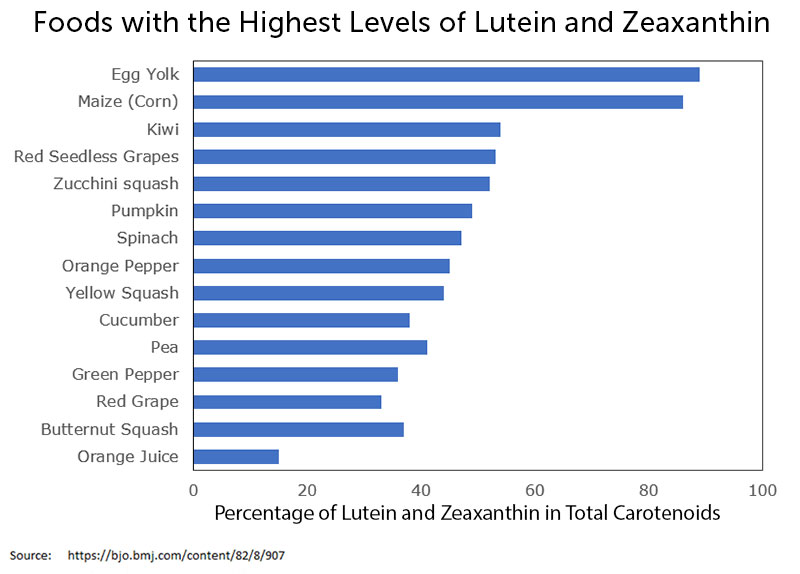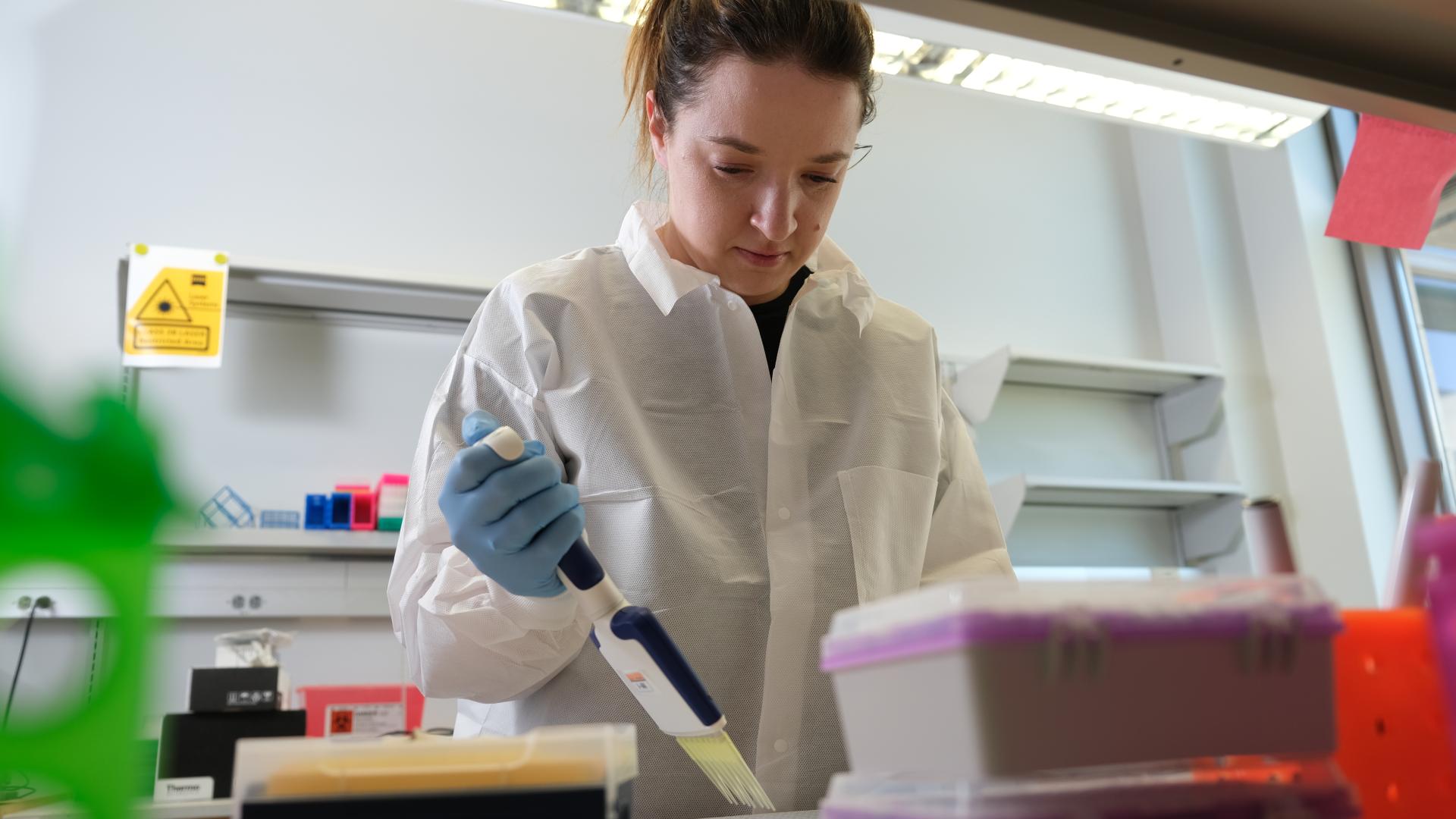
Age-related macular degeneration is the leading cause of legal blindness in older Americans. Therefore, it’s important to decrease the risk as much as possible. This article discusses lutein and zeaxanthin, micronutrients found in many fruits and vegetables, and how they may help to protect the macula.
The age-related eye disease studies (AREDS) showed that supplementation with certain micronutrients reduces the risk of progression from intermediate age-related macular degeneration to the advanced stage by 25 percent. Also, a diet rich in fruits and vegetables, as well as twice-weekly meals of fat-rich fish like salmon, sardines, tuna, or mackerel is associated with decreased risk.
There have been two AREDS studies. AREDS1 showed that 15 milligrams (mg) of beta carotene, 500 mg of vitamin C, 400 IU of vitamin E, 80 mg of zinc oxide, and 2 mg of cupric oxide reduced the risk of disease progression. AREDS2 tested the substitution of 10 mg of lutein and 2 mg of zeaxanthin for beta carotene. This substitution did not diminish the effectiveness of the formula and was especially helpful for people who had low-level consumption of lutein and zeaxanthin in their diet.
Lutein and Zeaxanthin
- Lutein and zeaxanthin are specific types of micronutrients from plants that are structurally related to vitamin A.
- Our bodies do not make these micronutrients; however, plants make them.
- When we eat lutein and zeaxanthin, they are transported to the retina, where they are thought to protect against light-induced damage.
Micronutrients
Beta carotene, lutein, and zeaxanthin are all specific types of phytochemicals (micronutrients from plants) called carotenoids, which are structurally related to vitamin A. Our bodies do not make these micronutrients; however, plants make them, in part, to serve as antioxidants* that protect them from potentially harmful sunlight. When we eat lutein and zeaxanthin, they are transported to the retina, where they are thought to protect against light-induced damage. There’s normally enough lutein and zeaxanthin in the macula, the central part of the retina, to turn this part yellow. In fact, the full name of the macula is macula lutea, which means yellow spot. It has been shown that taking lutein and zeaxanthin supplements leads to increased levels of these antioxidants in the macula.
Vision Foods
Foods such as egg yolk (go easy due to cholesterol), yellow corn, orange or yellow peppers, kale, broccoli, spinach, kiwi, grapes, zucchini, and squash have high levels of lutein and/or zeaxanthin.

AREDS
For people without macular degeneration, the above foods are a good way to decrease the risk of AMD. For those with early macular degeneration, the AREDS2 vitamins are recommended. AREDS1 formula vitamins are no longer recommended as the AREDS2 formula is at least as good, and the beta carotene in AREDS1 increases the risk of lung cancer in current smokers and perhaps also in past smokers.
Family members of people with macular degeneration often ask whether they should take AREDS2 vitamins or lutein/zeaxanthin. While these are safe to take during at least five years (the duration of the AREDS2 study), it is not known whether it would be safe to take them for several decades. Therefore, it is recommended that family members eat foods containing high levels of lutein and zeaxanthin rather than take supplements. These foods also contain hundreds of other phytochemicals that are likely to be helpful.
Video: Nutritional Supplements
About BrightFocus Foundation
BrightFocus Foundation is a premier global nonprofit funder of research to defeat Alzheimer’s, macular degeneration, and glaucoma. Through its flagship research programs — Alzheimer’s Disease Research, Macular Degeneration Research, and National Glaucoma Research— the Foundation has awarded nearly $300 million in groundbreaking research funding over the past 51 years and shares the latest research findings, expert information, and resources to empower the millions impacted by these devastating diseases. Learn more at brightfocus.org.
Disclaimer: The information provided here is a public service of BrightFocus Foundation and is not intended to constitute medical advice. Please consult your physician for personalized medical, dietary, and/or exercise advice. Any medications or supplements should only be taken under medical supervision. BrightFocus Foundation does not endorse any medical products or therapies.
- Diet & Nutrition
- Lifestyle
- Nutrition
- Prevention










